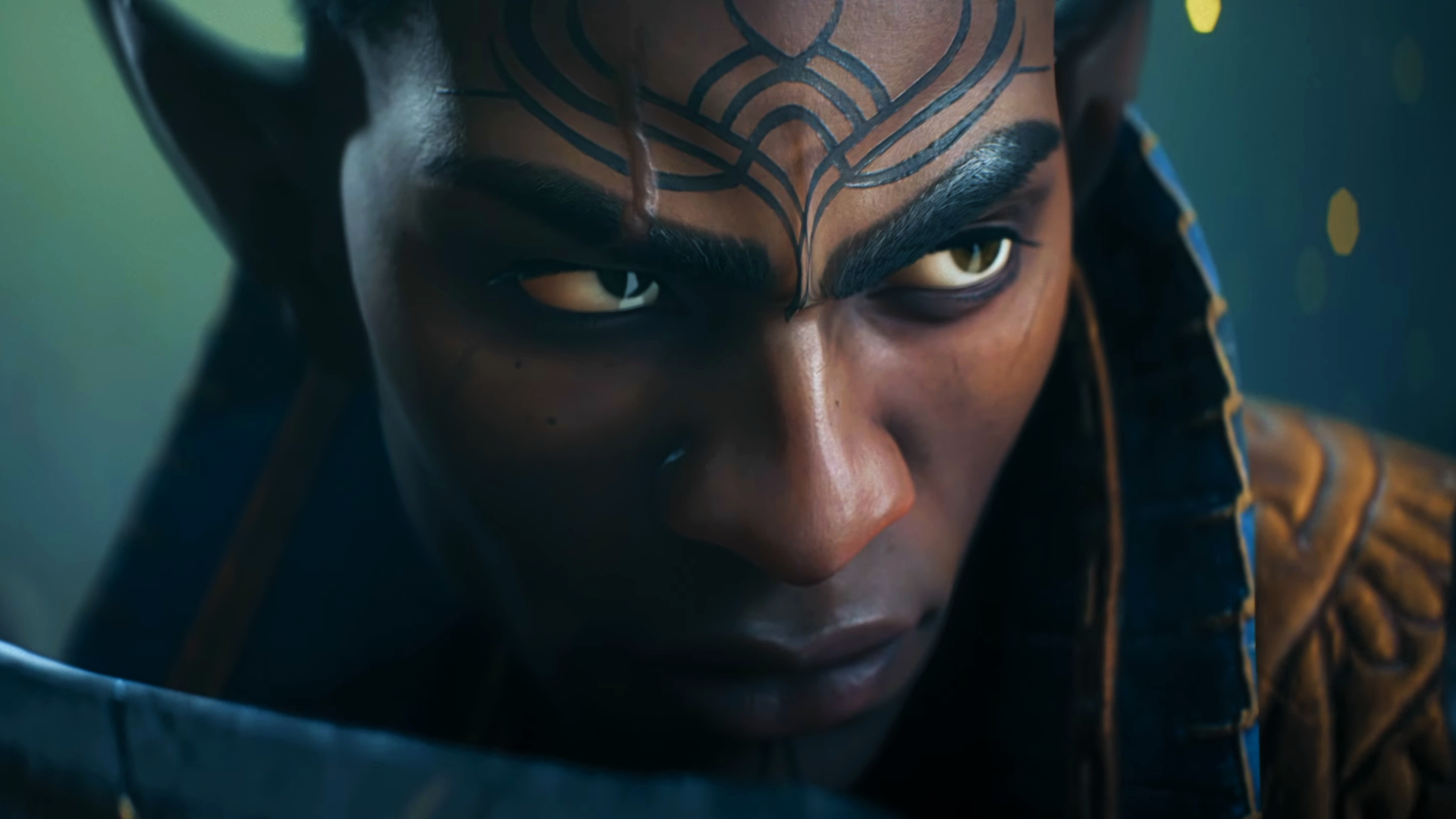An hour of Dragon Age: The Veilguard left me with more questions than answers, but I'm starting to believe I can love a BioWare RPG again
Preview | The Veilguard shows promise that BioWare can still build an incredible RPG for new and old fans alike
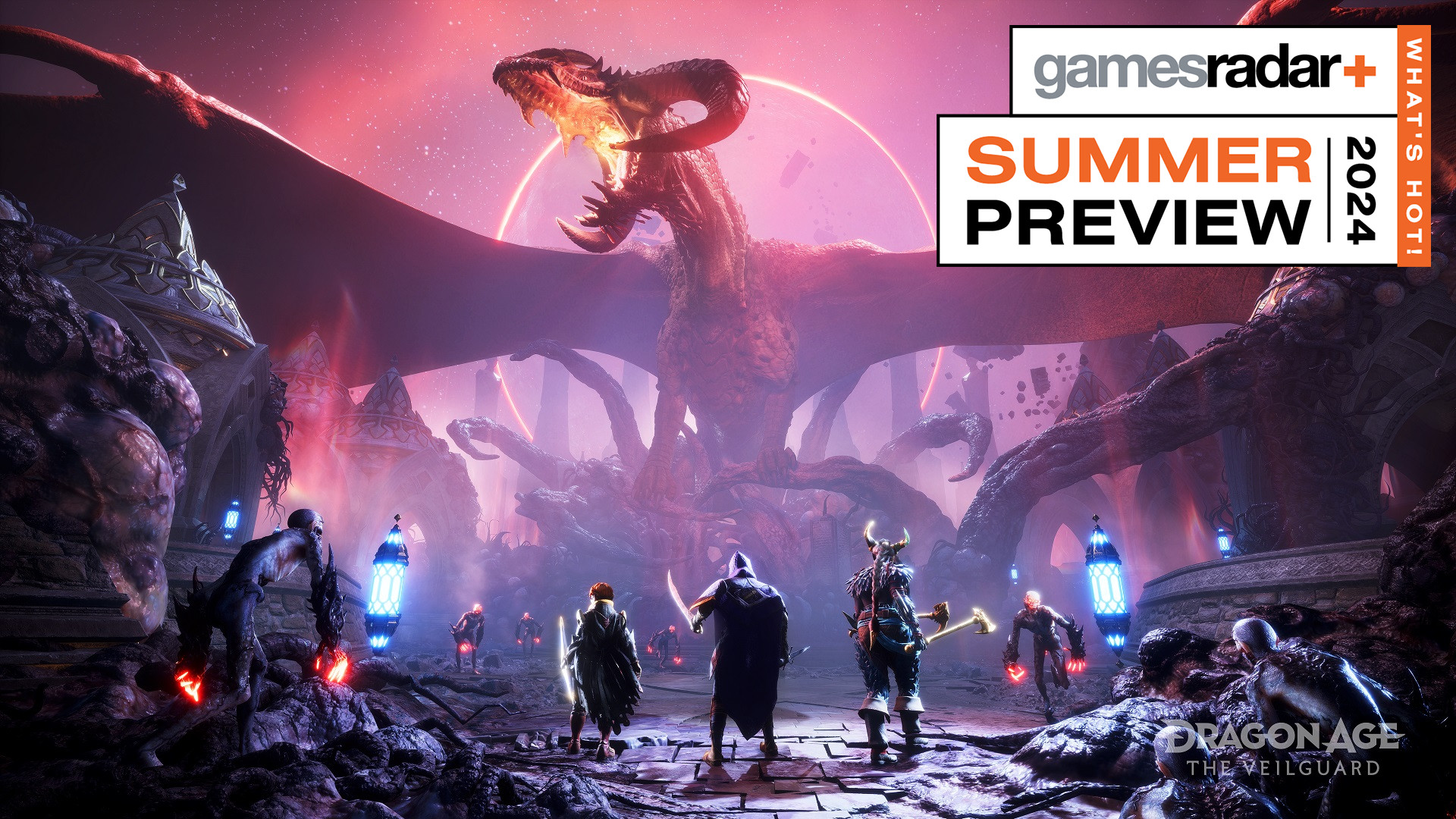
It's been ten years since the launch of Dragon Age: Inquisition – and ten years since I've played it. Despite playing the entire trilogy to completion and quite enjoying myself along the way, I've forgotten more than I ever knew about the series, and it feels like BioWare is catering to people just like me with Dragon Age: The Veilguard. The long-awaited fourth entry in the series has to pay off over a decade of anticipation from hardcore series fans, while bringing back lapsed players like me and inviting in complete newbies at the same time. It's a tall task to try and satisfy all those audiences at once, but BioWare is doing everything it can to stay true to the series' roots while adapting to what it hopes will be a new wave of fans.
"Each Dragon Age is an iteration," creative director John Epler tells GamesRadar+. "We take what worked before, we see what didn't and evolve. And this one to us is an evolution of all those other Dragon Age games kind of pulled together into a perfect package."
As part of Summer Game Fest, the devs demonstrated the first hour of the game to the media, playing straight through from title screen to a jaw-dropping title card cliffhanger that I certainly won't be spoiling here. You've already seen some of this if you checked out today's public gameplay reveal, and The Veilguard is certainly giving us a more action-focused Dragon Age experience than ever before, and that action looks polished, weighty, and complete.
This has all gone a long way when it comes to assuaging my fears about the game following so many rumors, reports of development hell and – let's be honest – a string of disappointing games from a once-legendary studio. But The Veilguard gives me hope that BioWare will be back with the good stuff this year, and I couldn't be more relieved.
Summer Games Preview
We're diving into the hottest upcoming games out of Summer Game Fest. To find all of our hands-on reports, visit GamesRadar's What's Hot 2024 hub.
Creating with class
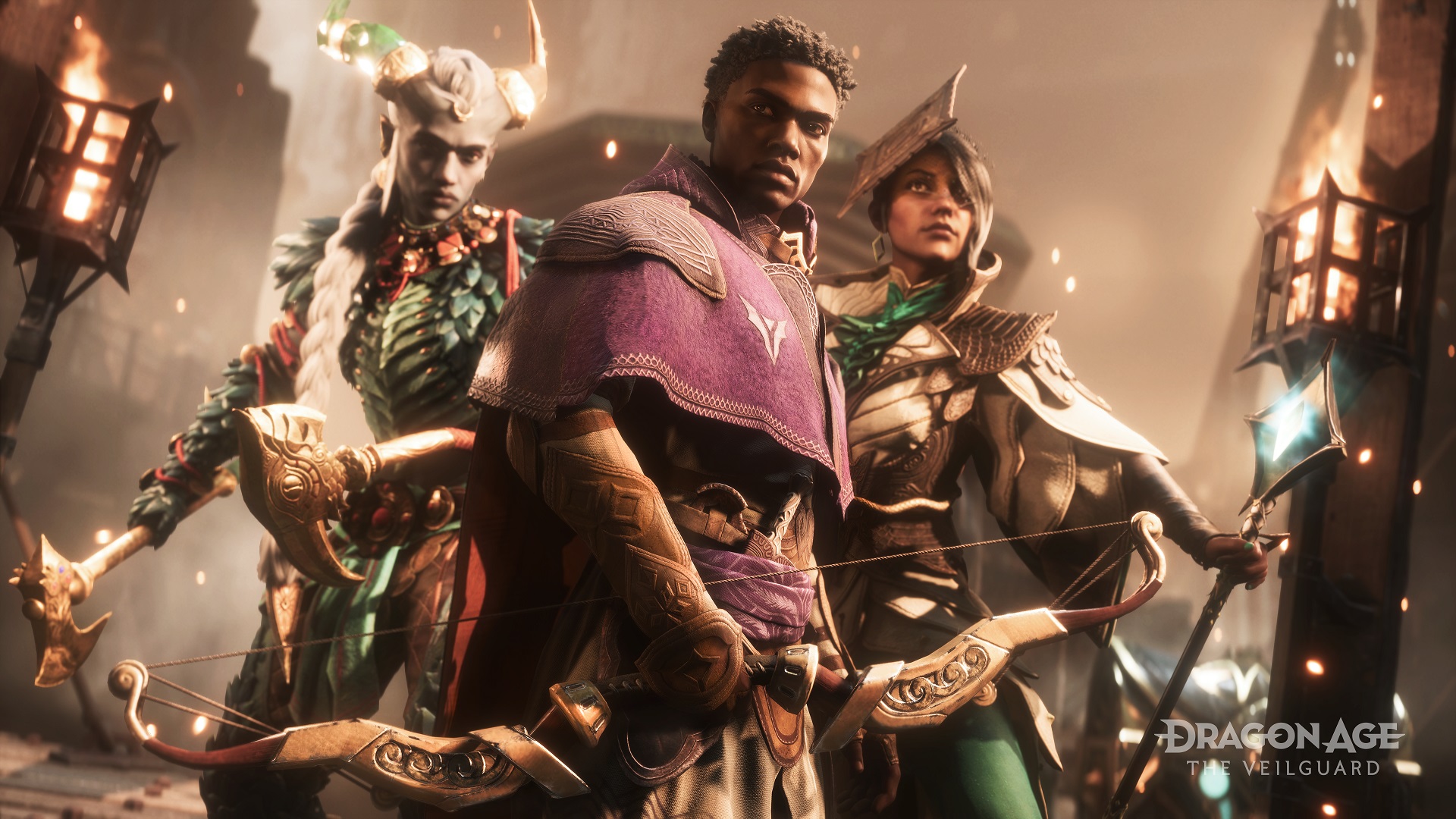
The Veilguard opens, of course, with character creation, which looks to be the richest creation suite BioWare has ever offered. There's face customization, yes, but there's also body customization, letting you fully define the look of your character from head to toe. There are four voices to choose from: two feminine and two masculine options, split between American and British accents. And yes, there are four races – or rather, 'lineages' in The Veilguard's parlance – to choose between: Human, Dwarf, Elf, and Qunari. You can pick your character's name, but as with BioWare heroes like Shepard and Hawke, you're referred to in the dialog by one title: Rook.
Throwing back to an old BioWare staple, you also give your character some backstory, here by selecting a faction to be associated with. The six options even include the likes of Dragon Age standbys like the Grey Wardens, and they'll each unlock unique dialog and a few gameplay perks as you go. Epler says that this faction choice comes in the same spirit as the Origin choice in the original game. "There's definitely intended to be that throwback," he explains. "It's not the same, there's not the unique missions, but it sets the course for your character throughout the rest of the game."
And, of course, character creation includes class selection. There are three principal classes – warrior, mage, and rogue – and three specializations within each. Each of those subclasses promises to offer some meaningful distinctions from each other, though we only got to see one rogue option in action. But the three main classes are distinguished by how they generate and spend energy for abilities.
Sign up to the GamesRadar+ Newsletter
Weekly digests, tales from the communities you love, and more
"Each class has its own resource meter," Epler explains. "Rogues have momentum. You build momentum by attacking, by dodging, by parrying, and you lose it by being hit, so there's really a focus with rogues on avoiding damage, avoiding attacks. They build momentum quickly, but they lose it quickly. Warriors have rage, which they build a little bit more slowly, but they don't lose."
Putting the 'action' in 'action-RPG'
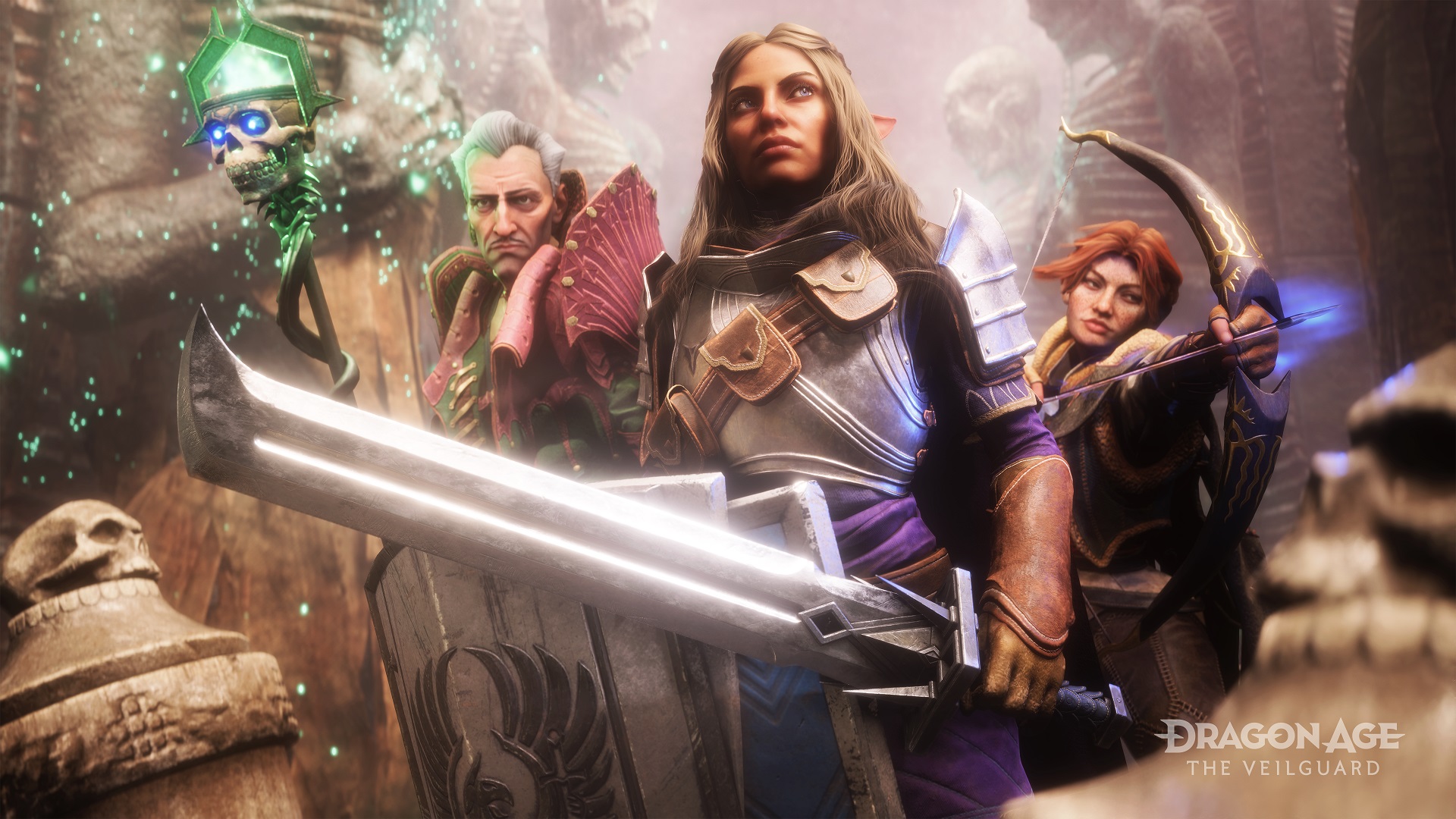
The combat's not quite God of War, as the rumors suggested – if anything, it looks a bit more like modern Assassin's Creed in my eyes, but even that's not quite right. It's quite fast and fluid, and looks like a natural evolution of the sort of strategic action combat BioWare's been building for years. I don't know how good that action will feel in practice – this demo was all hands-off, after all – but it looks at least as effective as an action game as any game the studio's done before. You can cancel attacks, execute quick dodges, and build up combos.
On the strategic side, enemies might have elemental weaknesses, or barriers and other defenses that are more vulnerable to specific types of abilities. Combat, then, looks to be a matter of managing your abilities to best whittle down those defenses and take advantage of those weaknesses. And, of course, your companions will have abilities that play in here, too.
We really needed to get the stakes, the spectacle, right off the bat.
John Epler
"Over the course of the game you get access to three abilities per companion," Epler says, "as well as an additional two abilities you can slot, and an additional ability that comes off of items that we won't talk about right now." The devs intend to give you "a lot of tools for every encounter."
You can also pause at any time in or out of combat to pop open a tactical command menu, letting you pause the action at any time to choose your abilities and issue orders to your companions. The action fully freezes here, giving you all the time you could want to plan your next move. This screen will also give you the lowdown on the weaknesses of whatever enemy you target. You can't fully escape the action combat if you want a more old-school experience, but there is a way to have a more strategic view if you want to – another way The Veilguard attempts to court multiple kinds of RPG fans.
Love and war
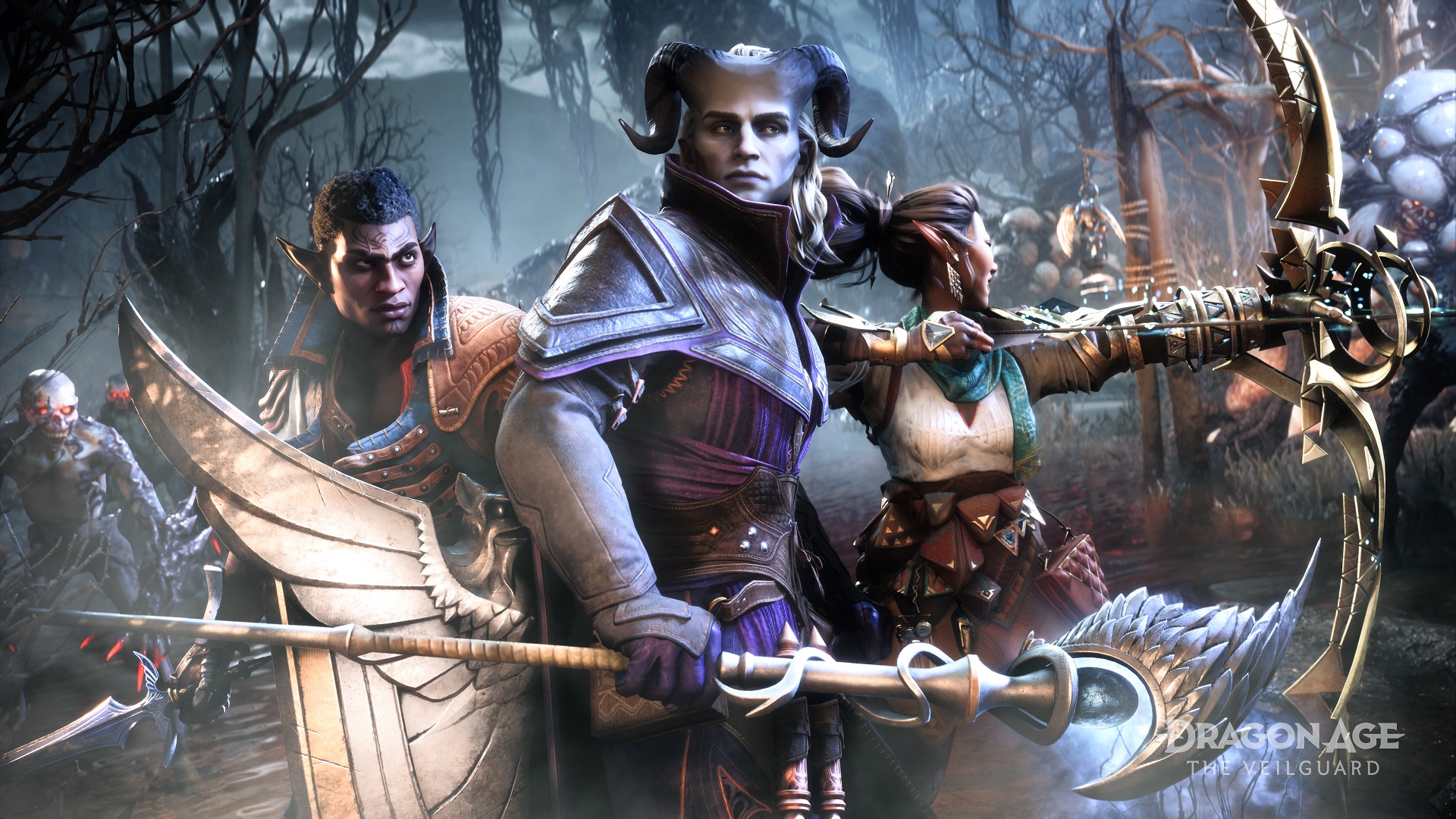
There are two things I remember about my time in the old Dragon Age games: firstly, that Varric is cool, and secondly, Solas is a jerk. That's pretty much where the story of The Veilguard picks up.
Within the first hour, you're directly confronting Solas with Varric at your side, immediately bringing a ten-year-old storyline to a dramatic head. That drama is enhanced by the setting of the opening quest, the city of Minrathous, an opulent location driven by advanced magic. Things very quickly get explosively bad as monsters start to overwhelm the city, building a set piece action sequence to rival anything BioWare's done before.
"One of the things we wanted to do with this game is make the prolog feel like the final mission of a different game," Epler says. "We really needed to get the stakes, the spectacle, right off the bat. Obviously, players who had been waiting to confront Solas have been waiting for just this moment." It's an effective opener. It certainly set the hook for me, building the stakes and introducing lore without getting bogged down in the deep details.
Part of why the introductory storytelling works so well is that it's driven by a group of characters – your companions – who play off of each other well, feeling like adventuresome heroes who never lose sight of the stakes they're up against.
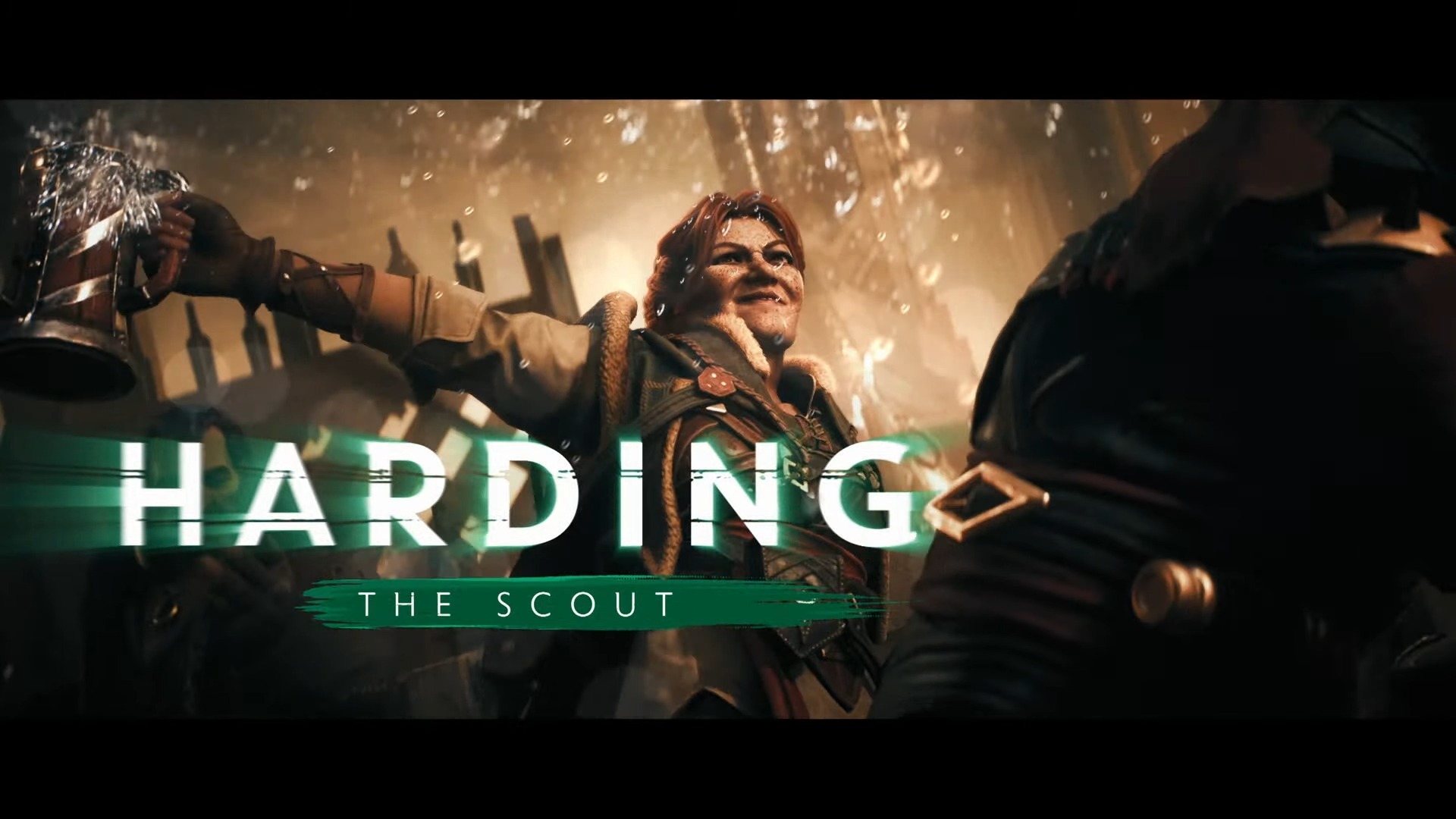
Romance is a Dragon Age thing. Romance is absolutely a thing we're doing, and each character's romance flavor is going to be different.
John Epler
"The companions have always been the beating heart of Dragon Age," Epler says, "and especially in The Veilguard, we found as we were building a story, more than ever before, it's a story about the people around you; a story about building this team, and working with them.
Each companion has their own storyline that runs parallel to the main story. But beyond that, something that we've never really done in Dragon Age [before] and that we've really done a deliberate job with this time, is you cannot succeed without them. Each of them has a reason why they need to be a part of your party, why they need to help you stop the end of the world."
But yes, of course, there will be opportunities to get to know your companions on a more intimate level, Epler confirms. "Romance is a Dragon Age thing. Romance is absolutely a thing we're doing, and each character's romance flavor is going to be different. So you know, we don't want every character for the romance to feel the same. We want everyone to have their own flavor that's appropriate to them as a character."
There's still so much we don't know about The Veilguard. We don't know the overall structure of the game, the nature of side quests, or how the classes and skill systems work together. We don't know where the story goes, or whether it will be able to thread the needle of paying off a decade-long plotline without alienating new players. I'm glad to report that The Veilguard doesn't feel like it's suffering under the weight of all its baggage, even after all these years overshadowed by uneasy rumors. This first look has, at a minimum, convinced me I could love a BioWare RPG one more time.
Check out the best RPGs to play while you wait for Dragon Age: The Veilguard.

Dustin Bailey joined the GamesRadar team as a Staff Writer in May 2022, and is currently based in Missouri. He's been covering games (with occasional dalliances in the worlds of anime and pro wrestling) since 2015, first as a freelancer, then as a news writer at PCGamesN for nearly five years. His love for games was sparked somewhere between Metal Gear Solid 2 and Knights of the Old Republic, and these days you can usually find him splitting his entertainment time between retro gaming, the latest big action-adventure title, or a long haul in American Truck Simulator.

